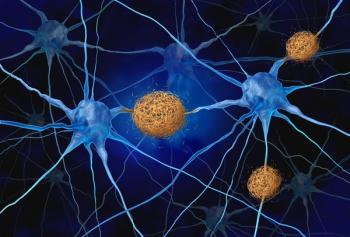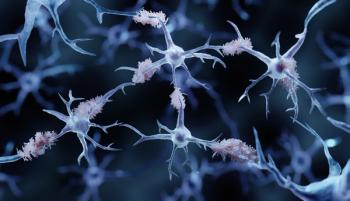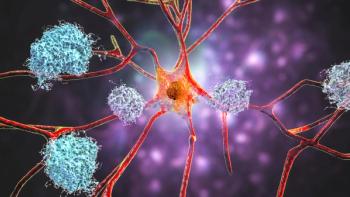
The chief product and strategy officer at Linus Health is hopeful that pharmacists can be key players in the detection of mild cognitive impairment.

The chief product and strategy officer at Linus Health is hopeful that pharmacists can be key players in the detection of mild cognitive impairment.

The study may serve as a foundation for future investigation regarding dietary recommendations to support the treatment of Alzheimer disease.

Findings from 2 large datasets suggest hormone therapy may reduce Alzheimer risk, hippocampal atrophy, and cerebrovascular disease.

Significant commonalities between type 2 diabetes and neurodegenerative disorders suggest that treatments effective for one condition may benefit the other.

Improvements were observed in both the intervention and control group, with those who had self-reported learning difficulties showing the least improvement.

Small adjustments in human pluripotent stem cell cultures and the molecule concentration patterns in the initial 5 days of differentiation are essential to “rescue” the lines.

In addition to a rapid deterioration, psychosis in Alzheimer disease can also lead to poorer quality of life, damaged patient-caregiver relationships, and increased isolation.

Edward B. Lee, MD, PhD, also describes how understanding Alzheimer disease requires the integration of multiple fields including genetics, pathology, epidemiology, pharmacology, and physiology.

Study results demonstrated that lecanemab provided sustained benefits over 36 months, such as improved biomarker profiles and slowed cognitive decline compared with placebo.

Tara Spires-Jones, DPhil, FMedSci, discusses how oligomeric tau clumps inside brain synapses, pointing to indirect evidence that it may be progressing through the brain by jumping between connections.

The co-founder, chief science officer, and chairman at Longeveron discusses the findings from the phase 2a trial CLEARMIND, as well as next steps to developing the therapy Lomecel-B.

Understanding and accounting for linguistic diversity is critical in diagnostics and treatment for dementia.

Joshua Hare describes how Lomecel-B addresses neuroinflammation, unlike other treatments which typically target amyloid disposition.

Safety and efficacy findings on Lomecel-B will be presented at the upcoming 2024 Alzheimer’s Association International Conference, which will be held July 28 to August 1.